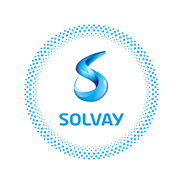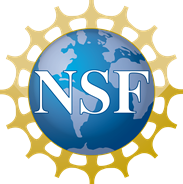
November 26 - December 1, 2023
Boston, Massachusetts
Symposium Supporters
2023 MRS Fall Meeting & Exhibit
Symposium EL12-Perspective on Applications of Metasurfaces—Advances in Metasurface Design, Fabrication, Integration and Material
Metasurfaces are artificially engineered composite surfaces with deep subwavelength units, and they exhibit optical characteristics that cannot be obtained in nature. This symposium aims at providing a forum for cross-disciplinary discussions on the applications perspective of metaphotonics. Particularly, we will focus on the rising cycle from synergy between innovations in materials science and metaphotonics. Leveraging the pioneering demonstrations of the on-demand amplitude/phase/polarization control, researchers have made continuous and significant advances in the field of metasurfaces, including space-time-modulated metasurfaces, nonlocal metasurfaces, large-scale optimizations, novel design methods beyond parameter sweeping to generate look-up tables, and high-volume fabrications. These advances have facilitated practical applications such as polarization-independent broadband metalenses with large sizes and multifunctional metasurfaces with substantially suppressed cross-talks, which could be used for computational photonics, super-resolution imaging, and biochemical sensing. To highlight the status and perspective of applications of metasurfaces, we will arrange talks on recent advances in mass production technology for metaphotonics with presenters from various fields of industry. In addition, the systematic studies in combination of novel material platform and strong light-matter interaction have empowered time-varying modulation of metasurfaces. Highly-tunable materials include low-loss phase-change materials, 2D materials, and MXene, which could be integrated with nano-resonators, paving a way toward novel applications such as LiDAR and free-space optical communications.
This symposium also covers new possibilities coming from Rendezvous between the metaphotonics and artificial intelligence (AI), focusing on both AI for photonics and photonics for AI. Various models and concepts developed in the field of AI have been implemented, yet there are still missing components such as efficient activation units. We seek to bring together researchers with diverse backgrounds from materials science, physics, electrical/chemical engineering, and computer science/vision to share recent groundbreaking advances in AI-empowered metaphotonics.
This symposium also covers new possibilities coming from Rendezvous between the metaphotonics and artificial intelligence (AI), focusing on both AI for photonics and photonics for AI. Various models and concepts developed in the field of AI have been implemented, yet there are still missing components such as efficient activation units. We seek to bring together researchers with diverse backgrounds from materials science, physics, electrical/chemical engineering, and computer science/vision to share recent groundbreaking advances in AI-empowered metaphotonics.
Topics will include:
- Multi-functional metasurfaces
- All-dielectric metasurfaces
- Reconfigurable/tunable metasurfaces and their applications
- Metalenses and flat optics for practical applications
- Atomically-thin metasurfaces using 2D materials
- Super-resolution imaging, computational imaging, and depth sensing using metasurfaces
- 3D displays, AR/VR displays, LiDAR, optical computing, optical memory
- New manufacturing techniques for metasurfaces
- Novel fabrication techniques for improving plasmonics/metasurface properties
- Advanced nanophotonic design strategies including machine learning, deep learning, topological optimizations, and inverse design, as well as new simulation methods
- Nonlocal metasurfaces in momentum domain for optical computing and in spatial domain for ultra-high Q resonance
- Meta-photonic integrated devices
- Biological and chemical sensing with metasurfaces
Invited Speakers:
- Ali Adibi (Georgia Institute of Technology, USA)
- Gauthier Briere (Applied Materials, Inc., USA)
- Mark Brongersma (Stanford University, USA)
- Federico Capasso (Harvard University, USA)
- Debashis Chanda (University of Central Florida, USA)
- Xianzhong Chen (Heriot-Watt University, United Kingdom)
- Robert Devlin (Metalenz, USA)
- Ramon Paniagua Dominguez (Agency for Science, Technology and Research, Singapore)
- Johnathan Fan (Stanford University, USA)
- Vivian Ferry (University of Minnesota, USA)
- Patrice Genevet (Université Côte d'Azur, France)
- Niklas Hansson (NIL Technology, Denmark)
- Huigao Huan (Hunan University, Singapore)
- Juejun Hu (Massachusetts Institute of Technology, USA)
- Sejeong Kim (University of Melbourne, Australia)
- Philippe Lalanne (Institut d'Optique, France)
- Howard Ho Wai Lee (University of California, Irvine, USA)
- Guixin Li (Southern University of Science and Technology, China)
- Zhaowei Liu (University of California, San Diego, USA)
- Stefan Maier (Ludwig-Maximilians-Universität München, Germany)
- Muhammad Qasim Mehmood (Information Technology University, Pakistan)
- Ragip Pala (Meta Materials Inc., USA)
- Cheng-Wei Qiu (National University of Singapore, Singapore)
- Haoran Ren (Monash University, Australia)
- Sookyoung Rho (Samsung Advanced Institute of Technology, Republic of Korea)
- Volker Sorger (George Washington University, USA)
- Isabelle Staude (Friedrich-Schiller-Universität Jena, Germany)
- Takuo Tanaka (RIKEN, Japan)
- Jelena Vuckovic (Stanford University, USA)
- Baile Zhang (Nanyang Technological University, Singapore)
- Shuang Zhang (University of Birmingham, United Kingdom)
Symposium Organizers
Junghyun Park
Samsung Advanced Institute of Technology
Imaging Device Laboratory
Republic of Korea
Yongmin Liu
Northeastern University
Department of Mechanical and Industrial Engineering
USA
Gururaj Naik
Rice University
lectrical and Computer Engineering
USA
Junsuk Rho
Pohang University of Science and Technology
Department of Mechanical Engineering, Department of Chemical Engineering
Republic of Korea
Topics
metamaterial
nanostructure
optical properties




-2.tmb-mtg_rel_ad.png?Culture=en&sfvrsn=a4240c09_1)

























